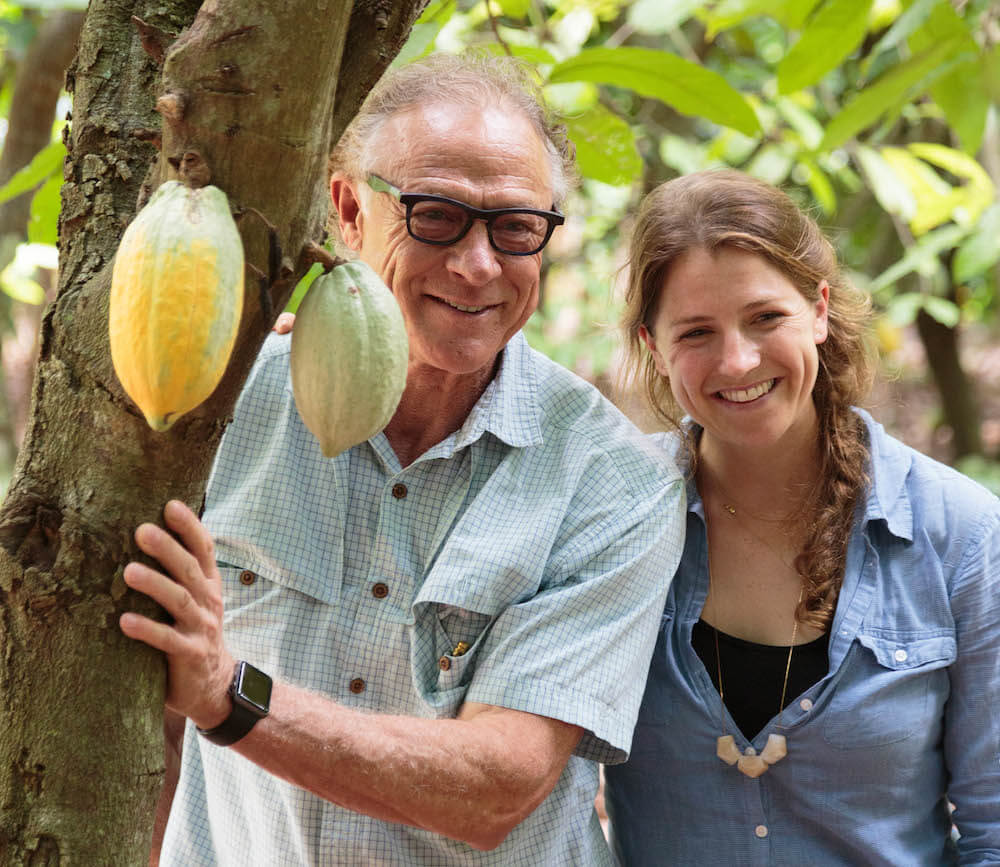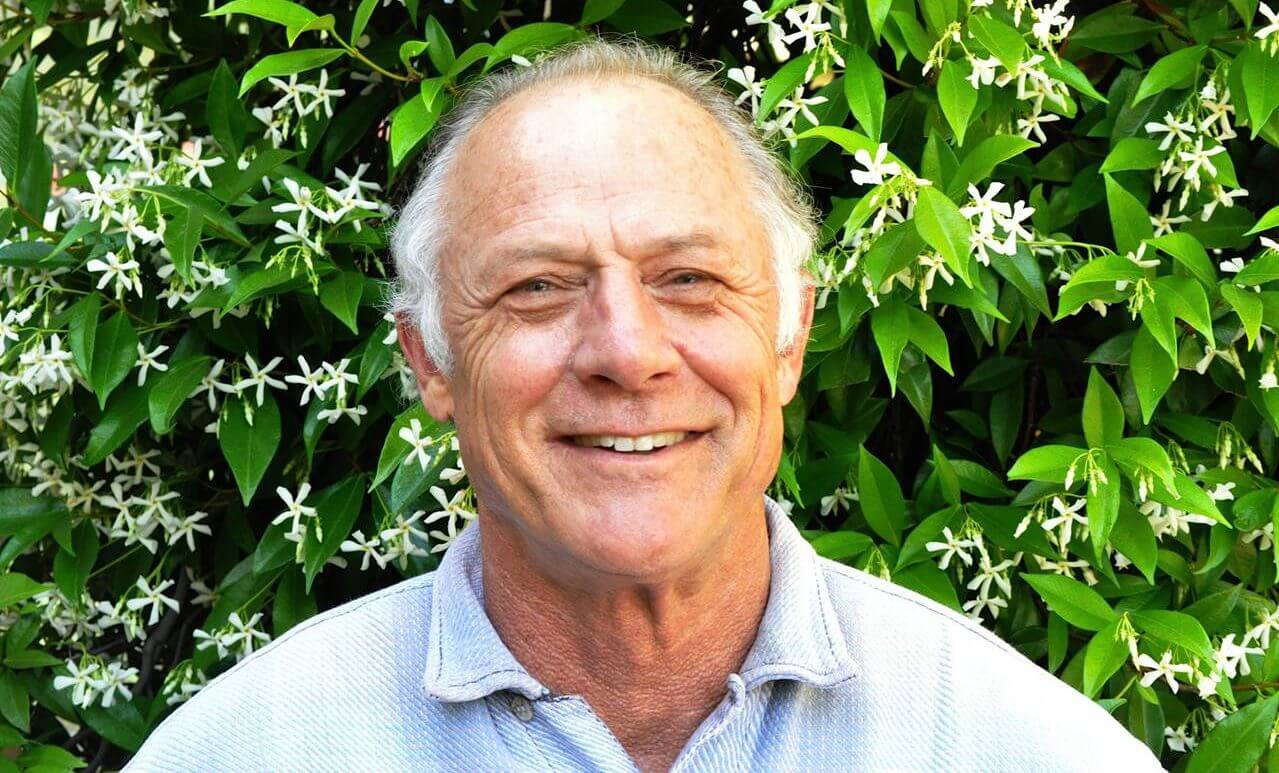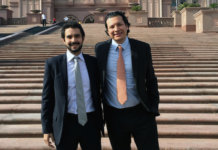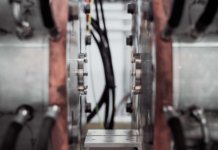Interview with Gary Guittard, CEO, Guittard Chocolate Company, United States of America
Northern California is home to many families whose ancestors came to San Francisco in the mid 19th century to pursue their luck in the gold rush. But one young adventurer’s journey took quite a different turn.
When Etienne Guittard left Tournus, France to join the California Gold Rush, he brought chocolate from his uncle’s factory as a means to barter for mining supplies. What he discovered was the miners and locals alike were willing to pay a premium for the delicious treat. He immediately saw the opportunity that was richer than panning for gold.
He returned in 1868 and opened Guittard Chocolate on Sansome Street. Now 149 years later, the same enterprise still stands as a thriving family owned business.
Guittard Chocolate Company has always been able to walk the fine line between progressive management and selfless ownership. As the fifth generation Guittard family members take an active role in the company, the company continues to find ways to support, explore and grow with its extended family of customers, co-workers, farmers and suppliers.
Tharawat Magazine spoke with 4th-generation CEO Gary Guittard to discuss the balance between innovation and tradition and what it means to bring happiness to your customers.
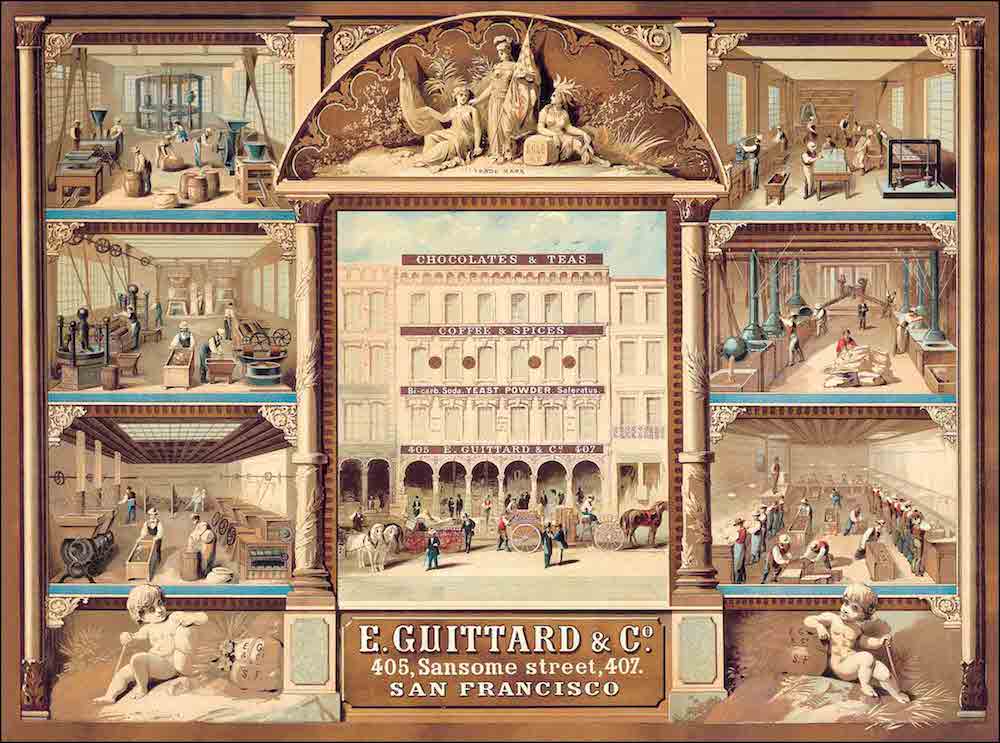
Your family business has such a fascinating origins story. When did the company go from selling products to miners to focusing more on chocolate and coffee?
I think pretty much after the earthquake and fire in 1906. That’s when they began to focus a little bit more. There were a number of different family companies back then and we are pretty much the last one standing. There was Hills Brothers coffee, MJB coffee, Folgers coffee. These were all family companies, now they’re owned by General Foods, and Procter & Gamble, and Nestle. And Ghirardelli chocolate, which was down around the water-front more towards the Golden Gate Bridge, are owned by Lindt now.
Guittard has remained in family hands all this time. What made your family business different from the others?
I think one of the key issues is narrowing down the ownership. Family members who haven’t been interested in the business have either received real estate or equivalent value as compensation. That resulted in a dedicated and passionate core ownership that’s remained strong. This has allowed the family members to grow the business, and reinvest in the business rather than paying out profits to other family members.
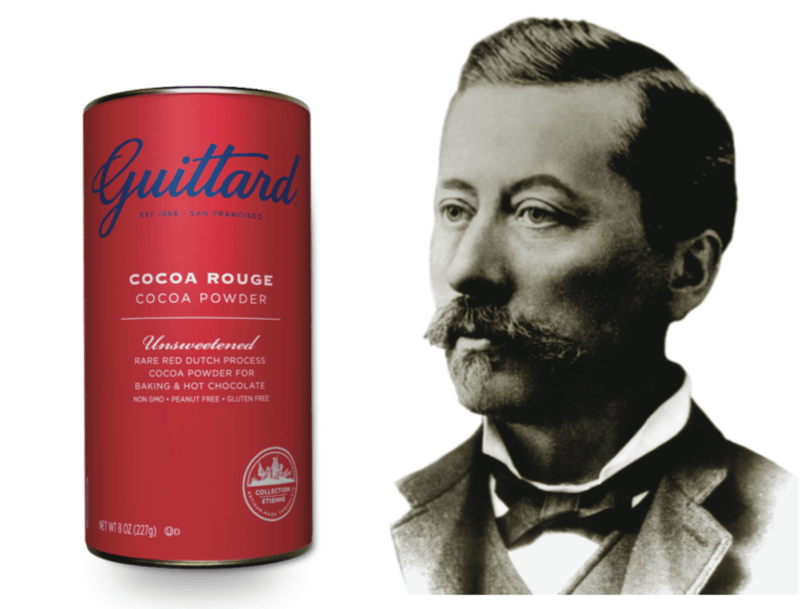
Did you always know you would work in the family business?
I can remember going down to the factory close to the Embarcadero in the early 50’s, which was an older, brick building that was probably even then a hundred years old. And the smells! I can remember in the sample closet, where we would get these little samples of chocolate, and playing with the adding machine, or looking at the machines, and things like that. I grew up in the business. When I completed school, I decided that I wanted to be in the film industry. I figured the best way to do that would be to join an advertising company.
The company I worked for was a boutique, San Francisco agency called Cooper & Harrington, and they had clients like Levi’s, which was a good old San Francisco family company. In time, I was laid off when the company was acquired by a larger firm and was looking for work. We had a rule in Guittard that you had to do something else for a few years to be allowed to work in the business. So, I worked for a food broker. I then came back into the company about three years later and started working in the retail side.
How was your experience working for and with your family?
It was great working alongside my Dad and my brother who joined seven or eight years before I did. The three of us worked in one office together, so we all knew what was going on. But my Dad contracted Lou Gehrig’s disease, ALS and he passed away in December 1988. And then tragedy struck again when my brother died about six months later. I found myself all alone in this big office, having lost my Dad and my brother. It was a tough transition. But I had a great team of people around me and we all kind of came together and forged ahead. And I’m proud of what we’ve accomplished, of what we’ve done with the company.
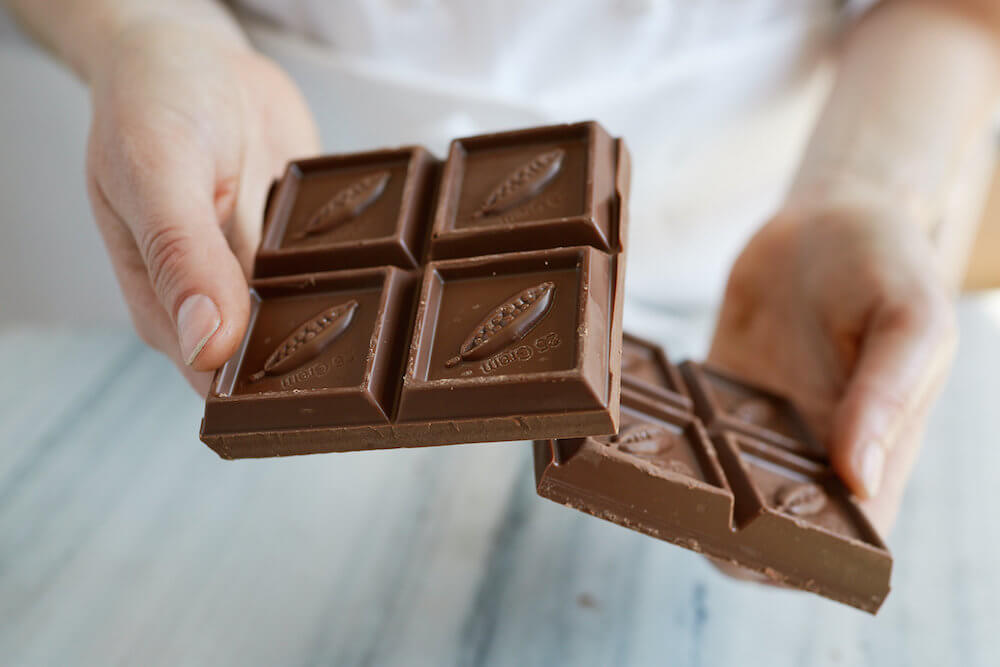
Your family business produces chocolate which to many of your clients symbolises a direct source of happiness in their lives. What does happiness mean to you? And how has that definition changed over the years?
When you talk about happiness, you have to talk about unhappiness. I think they go hand in hand. Eastern spiritual philosophy was my minor in school, so I’ve always had a kind of a philosophical interest in personal development. You know, how to connect your brain and your heart. But, to get there, you have to strive to achieve personal growth. You can’t be happy because you’re running from unhappiness. I think it requires acceptance and understanding of yourself and listening to others. Listening, and accepting your own shortcomings leads to knowing yourself. When you know yourself, you’ll know how to make yourself a better person. You’ll be more acceptant and more flexible, and less biased. It allows you to have a wider perspective in the way you deal with people, and ideas. It leads to a more creative approach to life. It leads to happiness.
Listen to the Podcast with Gary Guittard
You run a world-renowned chocolate brand. You provide people with happiness through chocolate. How have you kept the bar high?
I think in a lot of ways we lead the industry. Some years back the larger companies wanted to add vegetable fat to chocolate, and still be able to call it chocolate. It was a way for them to use less cocoa butter which is the fat that’s generally used. It was going to lower the cost. But we started a website dontmesswithourchocolate.com and ended up overthrowing the movement. The companies that were pushing for it were not very happy with us at all. But, it really marshalled a lot of energy from the consumers about leaving chocolate as a pure product. And I think that just that process, trying to be the champion of the product, made us happy and our customers happy. It came from a place of authenticity which I believe is key.
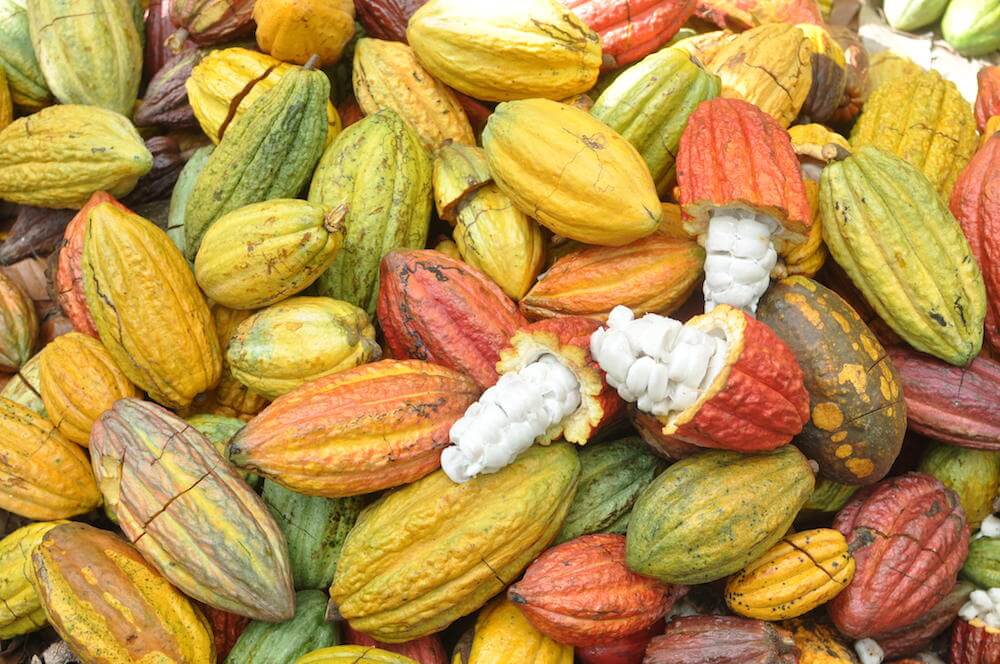
Has that led you to do more in the area of responsible cultivation and production?
Absolutely. We don’t deny we’ve been buying cocoa beans from areas that have suffered deforestation. But, we also recognise that that’s an issue so we often deal directly with farmers. We’re really trying to empower them. We’re pretty adamant about some of the philosophical issues in the industry.
One of the other things I’m concerned about is the idea that we don’t have enough chocolate in the world; that we have to plant more. I don’t believe the world is running out of chocolate. The industry’s push for more productivity from the farmer and for more productive planting material and disease resistant, is not the solution.
In reality, if the market goes up, the farmers will plant more cocoa. I believe we need to let the market dictate the supply according to the demand.
The other critical issue this effects is flavour! Unfortunately, many new productive and disease resistant cocoa trees do not produce good flavour. We are losing the traditional cocoas that have been important in growing the industry. We pay the farmers for flavour.
There are historical cocoas all around the world. In the 1500’s, some of these cocoas were taken by the Germans, the French and the English to West Africa; by the Spanish to the Philippines and Caribbean islands; and the Dutch who brought Montezuma’s famous cacao to places like Java.
Now we’re losing a lot of those flavours so we’re trying to educate some of the countries, like Ghana for instance. We’ve helped them develop a flavour lab where they make small batches of chocolate just like a lot of the small craft chocolate makers. They can learn what their flavour is and that allows them to help maintain that.

Is the next generation joining Guittard to continue your journey?
My daughter is working with the company, and she worked at Clif Bar. They make athletic nutrition bars for marathon runners and endurance athletes. She did that for about six years and then got her MBA in Design and Business. Now she’s pretty much running our marketing department, with a wide range of products. From the industrial supply to bakers and patisserie companies to consumers, she’s been a great help. I think one of the benefits of a family company is that the new generation really sees the world and society and understands where the energy is. She’s on top of all the stuff that’s going on that I really wouldn’t be privy to with my perspective and my age.
What’s your dearest wish for Guittard in the future? What would you love to see the company achieve?
I’d like to see the company be able to delight people, to keep delighting people. And be able to create new, innovative products and production techniques. I think delighting with your products really becomes the manifestation of the company itself. If we can do that, then individuals are happy, successful, creative, and pushing forward. I’ve tried to move it during my time. And I hope that in the future, we keep moving the bar higher for the industry and ourselves.
